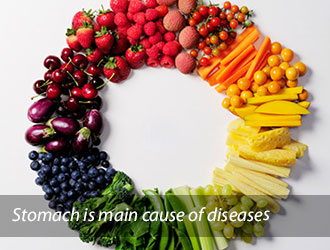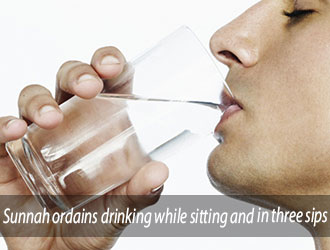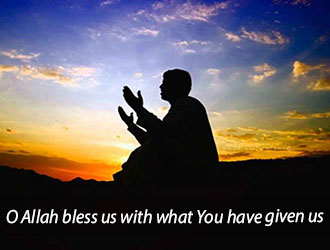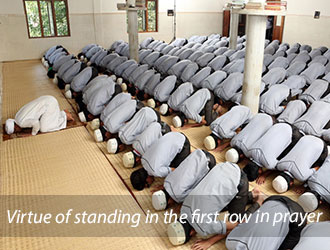- Sermons
- /
- Friday Sermons
Man's health lies in following the rules of the Noble Quran:
Dear brothers, discussing cleanness which was the subject of our last Khutbah leads us to talk today about maintaining the body's hygiene in order to protect it from diseases in the light of the Noble Quran and the Prophetic Sunnah.
((It was narrated from Salamah bin 'Ubaidullah bin Mihsan Al-Ansari that his father said: "The Messenger of Allah (PBUH) said: 'Whoever among you wakes up physically healthy, feeling safe and secure within himself, with food for the day, it is as if he acquired the whole world.'))
((Abu Bakr stood upon the Minbar, then wept, and said: 'The Messenger of Allah (PBUH) stood upon the Minbar the first year (of Hijrah), then wept, and said: 'Ask Allah for pardon and Al-'Āfiyah (well-being), for verily, none has been given anything better than Al-'Āfiyah.'))
O Allah, I ask you for well-being in this world and the Hereafter. O Allah, I ask you for forgiveness and well-being in my deen and in this world and in my family and my property. In the hardship of the Prophet PBUH in Ta'ef, he addressed His Lord and said:
((If there is no anger from you on me I will forever be content. However, your blessing is vastly important for me))
Each one of us is keen on his health, each one of us has worries about being inflicted with an intractable disease, each one of us longs to have physical health and strong hearing and sight and each one of us invokes Allah for well-being in religion, in this world and in the Hereafter. Is money valuable if there is no health, and is health valuable if one's faith is lost?
Dear brother, the majority of people realize these facts which are axiomatic, but they do not really follow the path drawn to them by the Noble Quran in order to grant them happiness and health. The Noble Quran indicates the basic principles of preventive medicine, given prevention is better than cure.
1- Uprightness:
The first principle is uprightness. In addition to being an act of obedience to Allah and a means to draw close to Him and be honored by this closeness, uprightness brings about health and happiness. Abstaining (because of uprightness) from intoxicating liquors and substance abuse, regardless the names, keeps man healthy, for people who are addicted to these substances are usually inflicted with fatal peptic ulcer or liver cirrhosis. 
((Whatever intoxicates in large quantities, a little of it or handful of it is haram (forbidden).))
As reported in the Prophetic Sunnah, a man was seduced by a women after she locked him inside her house to commit all sorts of evil, among which was drinking wine, but when he chose what seemed to him to be the least evil, i.e. drinking wine, he committed all other evil things, and thus wine was the key to all evil matters. Also abstaining (because of uprightness) from all sorts of inciting desires and lowering the gaze avoid man from Zina (fornication), so that he his physical health is maintained.
Syphilis, for example, is a sexual transmitted disease, and the bacterium of Syphilis is called Treponema pallidum. It is a spiral-shaped bacterium which looks like a snake upon being enlarged under the electron microscope. It is called the snake of Zina, because it is transmitted to the body only through fornication, and it might stay for 15 years in the body before it appears, then it might affect the brain and cause damage to it, which makes man lose his sanity or his sight. Also, it may appear as horrible sores on the face, around the mouth or on other parts of the body.
Dear brother, I am not exaggerating, but these are scientific facts I read in trusted medical reference, and the doctors among you know them very well. Allah says:
﴾And come not near to the unlawful sexual intercourse. Verily, it is a Fahishah [i.e. anything that transgresses its limits (a great sin)], and an evil way (that leads one to Hell unless Allah forgives him).﴿
2- Purification:
The second principle of preventive medicine in the Noble Quran is purification from every filth and impurity. Man is encouraged through the Quran to follow some hygiene habits, such as keeping cloths, his food and his drink.  I went into details last Khutbah about cleanness, and I showed you how cleanness brings about health before being a means of beauty and obedience to Allah.
I went into details last Khutbah about cleanness, and I showed you how cleanness brings about health before being a means of beauty and obedience to Allah.
3- Moderation:
Moderation in everything is the third principle of preventive medicine which is recommended in the Quran, whether in food, drink, pleasures, sleep, awakening, rest, anger, contentment, stress and tension, given most dangerous diseases are caused by severe stress. Narrated Abi Hurairah, may Allah be pleased with him: 
((When you love someone, love him moderately, as he might be your enemy one day, and when you hate someone, hate him moderately, as he might become a close one to you one day))
Allah the Almighty says:
﴾ O Children of Adam! Take your adornment (by wearing your clean clothes), while praying and going round (the Tawaf of ) the Ka'bah, and eat and drink but waste not by extravagance, certainly He (Allah) likes not Al-Musrifun (those who waste by extravagance).﴿
4- Stomach is the house of diseases and prevention is the best cure:
The fourth principle of preventive medicine, which is brought forth by Islam, is considering the stomach the house of ailment and prevention the best cure. 
((No man fills a container worse than his stomach…))
((Fullness takes away quick-wittedness.))
It is worth mentioning that one tenth of what we eat is enough to keep us alive, whereas the rest nine tenth of what we eat are enough to keep doctor's business alive. For that reason, the Prophet PBUH said to the physician sent by Al-Muqawqas:
((We are in no need of you, for we (Muslims) are people who only eat when hungry and stop eating before satiety.))
((No man fills a container worse than his stomach. A few morsels that keep his back upright are sufficient for him. If he has to, then he should keep one-third for food, one-third for drink and one-third for his breathing.))
It is preferable to leave the table just before filling up his stomach, and that would be the best thing to do. Upon doing so, man will feel indescribably zealous and active, and those who tried it know that very well.
Dear brother, most diseases people complain about, like liver disorder, high blood pressure, heart failure, atherosclerosis (hardening of arteries) or high uric acid, are according to medical references just symptoms and not diseases; they are symptoms of obesity which is the outcome of overeating and overdrinking. Allah says:
﴾O Children of Adam! Take your adornment (by wearing your clean clothes), while praying and going round (the Tawaf of) the Ka'bah, and eat and drink but waste not by extravagance, certainly He (Allah) likes not Al-Musrifun (those who waste by extravagance).﴿
((A'isha (RA) said, "The first innovation that came into effect after the passing of the Prophet PBUH was filling ones full appetite.))
Filling up the stomach not only causes health problems to man, but also makes him lazy in offering his Salah and other acts of worship. It is part of the Prophetic Sunnah to suck up water instead of gulping it, and we should not drink water in one breath but in two or three breathss while sitting. The Prophet PBUH said:
((Suck up water and do not gulp it, for gulping brings about kubad (ailment of the liver)))
In another Khutbah, I will go into details about this Hadith insha' Allah. It is part of the Prophetic Sunnah to go to bed early and wake up early, for doctors confirm that one hour of sleep at early night equals 3 hours of sleep at late night.
((It was narrated from Sakhr Al-Ghamidi that the Messenger of Allah (PBUH) said: "O Allah, bless my nation in their early mornings (i.e., what they do early in the morning)." (Hasan) He said: "When he sent out a raiding party or an army, he would send them at the beginning of the day." He said "Sakhr was a man engaged in trade, and he used to send his goods out at the beginning of the day, and his wealth grew and increased."))
((Narrated Abu Huraira: Allah's Messenger (PBUH) said, "If the people knew what is the reward of making the call (for the prayer) and (of being in) the first row (in the prayer), and if they found no other way to get this privilege except by casting lots, they would certainly cast lots for it. If they knew the reward of the noon prayer, they would race for it, and if they knew the reward of the morning (i.e. Fajr) and `Isha prayers, they would present themselves for the prayer even if they had to crawl to reach there.))
Dear brother, call yourselves to account before you are called to do so and weigh your deeds before they are weighed against you, and you should know that the Angel of Death reached sh3er and will reach us soon, so pay heed. The wise man is the one who calls himself to account (and refrains from doing evil deeds) and does noble deeds to benefit him after death; and the foolish person is the one who subdues himself to his temptations and desires and seeks from Allah the fulfillment of his vain desires.
Praise be to Allah, the Lord of the Worlds.
***
The second Khutbah:
Praise be to Allah, the Lord of the Worlds, and I bear witness that there is no Deity but Allah Alone, the Protector of the righteous. And I bear witness that our Prophet Muhammad, peace be upon him, is His Servant and Messenger, the one with noble morals.
Supplication:
O Allah, we beseech You to show us the way of righteousness together with those to whom You showed it; and to give us good health together with those whom You have healed; and to be our Protector, as You are of those whom You protect; and to bless what You have bestowed on us; and to save us from the affliction that You have decreed –for You rule with justice and You are never judged.
O Allah, increase us [in Your Blessings] and do not decrease us, honor us and do not humiliate us, give us [from Your Gifts] and do not deprive us, be in favor of us and not against us and make us satisfied and be satisfied with us.
O Allah, dignify us by Your generosity and do not make us lose our dignity in trials, turning to the worst among your creations, praising those who give us and dispraising those who do not, for You are the One who bestows and in Your Hands only the treasures of the heaven and the earth.
O Allah, please lead us to the good deeds, for no One leads to them but You, and save us from the bad deeds, for no One saves us from them but You.











